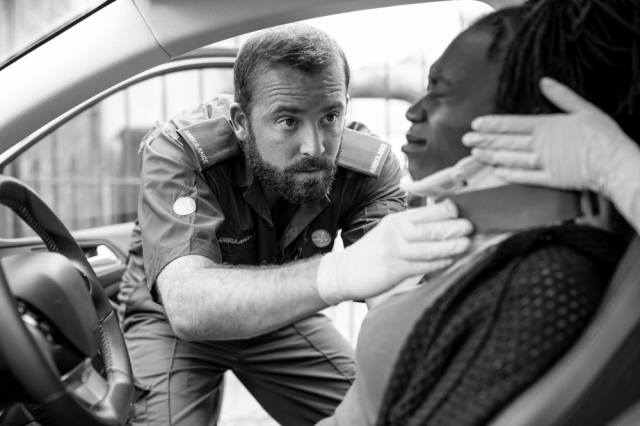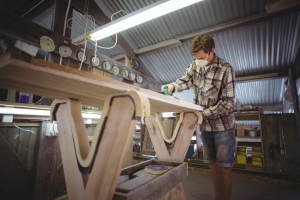Accidents - from simple fender-benders to traumatic truck collisions - throw life major curveballs.
Out of nowhere, your world turns upside down. You have to deal with injuries, insurance fights, lost income, pain and uncertainty about the future. And consequently, feelings of anxiety, anger and fear set in because of having to suddenly navigate challenges you never signed up for or could have anticipated.
But you shouldn't lose hope during the adjustment process. Here is what you can do to make coping easier.
Leveraging Technology to Stay Organized
Once you've taken the necessary steps to care for your health, you can focus on handling the influx of logistics and paperwork that accompanies accidents. Luckily, we live in the digital age which makes organization a lot more manageable!
Here are some ways to leverage technology so you don't feel buried under all the admin work:
Use Doc Scanning Apps
Document everything accident-related - take photos of damage, save hospital bills, catalog correspondence from insurance companies. But carrying around piles of paper is annoying. Instead, use scanner apps like Scanbot, Adobe Scan or Microsoft Office Lens to upload hard copies to cloud storage instantly. This keeps important files accessible across devices while freeing up physical space.
Take Advantage of Calendar Apps
Your schedule will suddenly fill up with medical appointments, meetings with claim adjusters or auto repair people, court dates if necessary, etc. Rather than scrambling to remember everything, use shared calendar apps like Google Calendar and Cozi to map it all out. You can provide access to family members too so everyone stays current.
Record Conversations
Stress and medication can make accidents a blur. When having key conversations over the phone, use apps to capture audio. You'll appreciate being able to reference these interactions later when handling claims. Just make sure you check consent laws in your state first.
Organize Expenses Digitally
Collecting receipts, tracking reimbursements and tallying accident-related costs is a recipe for frustration. Instead, opt for cloud accounting platforms like Quickbooks or expense tracking tools like Expensify. Upload receipts via mobile, record payments due and simplify managing finances amidst the chaos.
Thanks to handy smartphone apps and online platforms, keeping your life streamlined after an accident no longer requires binding folders and paper clutter. Embrace digital organization so you can focus energy on more important things - like getting back on your feet.
Streamlining Meals and Household Duties
Another big challenge in the aftermath of an accident is keeping up with all your regular daily tasks - especially if injuries are impeding mobility or energy levels. Small chores like cooking and cleaning suddenly become daunting.
Rather than pushing yourself and getting overwhelmed, take advantage of modern conveniences to simplify household duties, so your bandwidth goes towards rest and recovery.
Here are some ideas for streamlining meals and chores as you heal:
- Grocery delivery services like Instacart are real timesavers. Browse apps from your couch and get items brought right to your home.
- Prep some freezer meals in advance for easy heat-up options after your accident. Casseroles, soups and stews freeze and reheat nicely.
- Use paper plates, cups etc to cut down on dishes piling up. Less cleanup means one less task sapping precious energy needed elsewhere.
- Hire professional cleaners even once a week can alleviate painstaking vacuuming, scrubbing, dusting and picking up when energy levels are low.
- Ask friends and family to contribute meals or help out with cleaning and laundry temporarily as you navigate this adjustment period after an accident. Most people want to help and will be glad to lighten your load while you tackle bigger challenges!
Don't be shy about accepting help or using conveniences that streamline day-to-day burdens as you regain your footing. Order in food or outsource tasks so you emerge energized and empowered.
Working With Insurance Adjusters
One unavoidable headache after accidents is working through the claims process with your insurance company. Navigating adjusters, documentation requirements and answering intrusive questions often makes an already stressful time that much more frustrating.
Here are tips for streamlining communication so you secure fair compensation for your injuries while dealing with insurance adjusters:
- Review your policy in-depth so you know what is and isn't covered before that first adjuster conversation. No surprises!
- Create a timeline noting all facts related to the accident while fresh. When, where, people involved and other situational details. Update this document as the process advances.
- Keep thorough records including photos, emails confirming conversations, and receipts for all treatments and expenses. Digital organization helps!
- Avoid recorded statements when possible and request conversations be face-to-face or over Zoom so you aren't caught off guard.
- Bring an advocate to meetings with adjusters - whether a family member or legal rep. They can take notes, ask clarifying questions and have your back.
- Know the common tactics adjusters use to minimize claims, so you don't get pressured into accepting less than you deserve. Politely stand firm if they deny treatment options, dispute obvious injuries or make unreasonable requests.
Remember - the insurance company isn't on your side. Their job is to pay as little as you'll accept. Doing your homework on the process and policies prepares you to deal with adjusters efficiently, so you secure fair compensation with minimal stress.
Returning to Work
Jumping right back into 50-hour work weeks after a traumatic collision, like a truck accident, can jeopardize healing - physically and mentally.
On the other hand, taking too much time off can breed anxiety, financial strain and other unforeseen issues. The key is finding the right balance based on your unique situation.
Here are some work-related tips for streamlining life after accidents:
- Talk to your employer about partial return plans - maybe you ease in with reduced hours or less strenuous tasks at first. Most want to help accommodate.
- Inquire about work-from-home arrangements depending on your job description and injury limitations. Even hybrid schedules with some office days can help transition back.
- Use productivity tools like project organizers, focus timers, noise cancelling headphones, etc. to optimize home office setups. Creating structure prevents wasted time.
- Make expectations clear with managers and colleagues about workloads to avoid overexerting yourself too soon. Be honest about what you can handle.
- Try job reassignment to a less demanding position if your previous role isn't feasible given the new physical restrictions imposed by injuries. Many employers gladly retrain.
- Don't ignore doctor orders or push yourself past exhaustion in an effort to prove something or keep up with pre-accident productivity levels. With strategic planning focused on your abilities, returning to fulfilling work is very achievable.
The aim is to integrate back into professional endeavors smoothly - in a manner aligned and considerate of your recovery process. The right game plan prevents being overwhelmed.
Leveraging Community Support Systems
Beyond embracing technology, allowing help from others and implementing customized return-to-work plans, remember to also lean on various community lifelines available.
Support groups, nonprofit resources, government assistance programs, legal clinics, short-term lending services and even local places of worship offer guidance and solutions for accident victims facing obstacles.
Here are a few examples of community support to tap into:
- Peer Support Groups that connect trauma survivors for advice and empathy.
- Nonprofits that offer counseling, claim guidance and referrals.
- Government Social Workers provide information on available local, state and federal assistance programs.
- Legal Clinics hosted by law schools provide free advice navigating the claims process. Knowing rights is powerful!
- Religious Organizations support members and even non-members with meals, counseling, childcare, donations, job placement and countless other resources.
Don't hesitate to seek out help from compassionate people and groups ready to guide accident victims. You don't have to figure everything out alone. Community support systems make streamlining life after crisis mode completely manageable.
In Conclusion - There is Hope!
By leaning on modern technology to simplify tasks, taking advantage of community support systems around you and customizing work-life balance to align with doctor guidelines throughout healing - you absolutely can streamline living after accidents.
Remember - your circumstances don't define you. How you handle adversity does.
Commit to streamlining your new normal so that when you reflect back months or years down the road, your memories focus not on the accident itself but on overcoming the adversity it caused.
You've got this!






